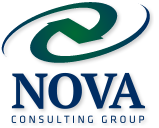“Assured reliance on the character, ability, strength, or truth of someone or something; one in which confidence is placed; dependence on something future or contingent : hope…” Merriam-Webster
Trust – We all know what it is. We all know it is essential in our interactions with others; we even profess to be “trusted advisors” or working to attain “trusted advisor” status. But did you know that trust is a high risk undertaking?
The risk of failure in a trust relationship is so high that most companies would choose to not make an investment of resources if the risk of failure was has high as it is with a trust relationship. In their study focused on collaborative relationships (of which trust is the foundation and critical component) Bleeke and Ernst (1993) found that 66% of trust-based alliances ran into serious managerial problems within the first two years.
Learning to work together is hard. Most times we show up to our newly formed trust-alliances with no clear path. We bring with us strategy and structural design for the trust-alliance but totally discount that everyone in the trust-alliance shows up with their own assumptions, attitudes, expectations and fears about their roles. Adding to this are barriers such as, cultural differences (corporate and likewise), communication barriers, lingering suspicion about alliance partner motives and latent opposition in the alliance companies.
These trust-alliances are not just the “strategic” alliances reserved for senior management participation. Trust-alliances come in all sizes; they can be found in those opportunities, deals and sales that are made every day by your sales team.
Building meaning, sustainable trust-alliances with your customers/clients is essential to your company’s long term survival. Strong trust-alliances will shield you from things like “price-only” competitive assaults and “me-too” products and services which are faced every day. They pave the way for incremental revenue at a lower cost (ever heard that it is less expensive to sell to those you know vs. those you don’t?).
So how do you build those strong trust-alliances with your customers/clients?
Here are some areas to consider:
- Explore and develop the people aspects of the alliance. Who are the players – both sides. Is everyone committed to establishing a sustainable trust-alliance; is the chemistry right; is everyone involve “trustworthy”; do you understand your customer/client’s culture and do they understand yours.
- Spend time in the early stage of a trust-alliance to build trust and engage in a continuous process of nurturing.
- Learn about each other. Not just the companies and company cultures but the people involved in the actual management of the trust-alliance.
- Communicate often. Early on communications are essential both internally and between the trust-alliance participants, open and informative communication.
- Take “baby-steps”. Studies show that by taking on a modest initial project, larger more complex projects will have a strong “trust foundation” to build on.
Forming trust-alliances provides companies with a competitive advantage. They are, however, a major challenge to most companies. Managing theme and underestimating the power of the human-effect will doom your organization to failure. Step into the new marketplace. Learn to successfully manage and grow sustainable trust-alliances with your customers/clients.
At The Nova Consulting Group, we work with our clients to develop sustainable sales methodologies that are rooted in the (human) social sciences. Our methodologies take into account the power of the human-effect and produce strategies, processes and execution plans that work.


